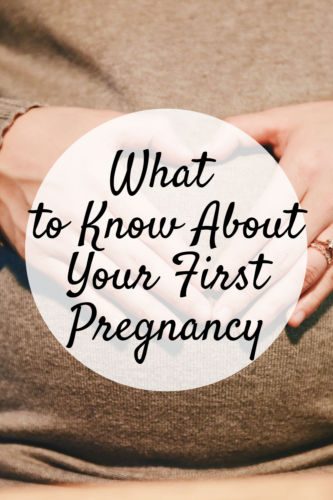
Finding out you’re going to be a parent is one of the most exciting things you’ll ever experience. It can also be one of the most overwhelming because there is so much to learn.
Just take a breath. You have nine months to learn as much as you can so take your time and give yourself a little grace through the process.
Let’s take a look at a few things you should know about being pregnant for the first time.
Issues With Breastfeeding
Many women find themselves having issues with breastfeeding after they’ve given birth. Don’t worry, it’s far more common than you might think.
You can start working with a lactation specialist before your baby arrives to learn proper techniques and receive extra breastfeeding support.
Understanding the Trimesters
A typical pregnancy usually lasts around 40 weeks/nine months. Throughout your pregnancy, you’ll go through three trimesters.
- First Trimester: 1-12 weeks
- Second Trimester: 13-26 weeks
- Third Trimester: 27 weeks – end of pregnancy
You’ll experience different symptoms throughout the different trimesters as your baby grows.
The first trimester is when you experience several major changes. You may feel bouts of nausea, fatigue, breast tenderness, low energy levels, and frequent urination.
The second trimester is when you start to have some relief. Many of the symptoms from the first trimester subside. However, you may start to experience back pain, heartburn, constipation, or abdominal pain. It’s also when you may start to feel flutters of the baby inside of your belly.
The third trimester is when the physical symptoms ramp up. You may have shortness of breath, incontinence, issues with sleeping, or hemorrhoids. This is because the size of your uterus is increasing as your baby is preparing to enter the world for the first time.
Changes In Hormones
Several hormones will change during pregnancy. The most common ones that impact your mental, emotional, and physical well-being are:
- Human chorionic gonadotropin hormone (hCG)
- Human placental lactogen (hPL)
- Estrogen
- Progesterone
These can manifest in several different ways such as intense chemical imbalances, mood swings, depression, cravings, swelling, and many other symptoms. However, these hormones are critical to the growth of your child by providing nutrition and creating a healthy home for your baby to grow.
Weight Gain
This can be a tricky subject for many women. But understanding that it’s completely normal and healthy to gain weight during your pregnancy will help you through it.
During your first trimester, your baby is still very small so you may only need to gain three or four pounds. You may even find yourself potentially losing a few pounds due to a lack of appetite.
The average woman with a normal BMI should gain anywhere from 25 to 35 pounds, according to the CDC recommendation. If you gain a little extra, don’t stress about it. Most, if not all of the weight, can be shed once the baby is born.
Cramps Can Happen
You may be alarmed if you begin to feel cramping early on in your first trimester. It’s actually a very normal experience many women have.
As the embryo attaches to your uterus, implantation begins. This can result in light bleeding or cramping similar to if you have a light period. If you’re experiencing heavy bleeding and severe cramps, seek professional help from a doctor immediately to rule out any further complications.
This article is only skimming the surface when it comes to learning what happens to your body during pregnancy. Just remember to take it one day at a time and remember that not every pregnancy is the same. What one person experiences could be completely different from another.





